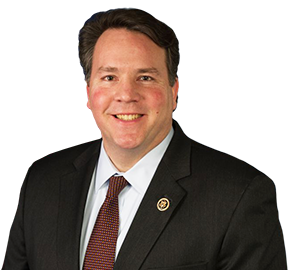As part of a bicameral legislative effort, U.S. Sens. Shelley Moore Capito (R-WV) and Joe Manchin (D-WV) introduced the Carbon Capture Modernization Act this week to modernize the Section 48A tax credit for coal facilities utilizing carbon capture.
Backed by a host of business and academic groups, including ALLETE Clean Energy, Minnesota Power, the National Rural Electric Cooperative Association, and the University of North Dakota Energy & Environmental Research Center, the legislation would open up the Section 48A tax credit first created in 2005. That credit was focused on coal-fired power plant projects that sought to reduce emissions through efficiency upgrades.
However, advocates of reform argue that the law has become outdated, despite revisions in 2008. Chiefly, the credit requires capture and storage of 65 percent of the CO2 generated at eligible plants, which groups like the Carbon Capture Coalition argue leaves carbon capture, utilization and storage (CCUS) retrofit projects in the cold.
“The transition to a cleaner energy future must come through innovation, not elimination,” Manchin, Chairman of the Senate Energy and Natural Resources Committee, said. “This bipartisan bill will incentivize the expanded use of carbon capture technologies, which is a critical component of meeting any global climate goals. This will help reduce emissions, keep our energy affordable and reliable, and chart a path to a cleaner energy future while also ensuring our continued climate leadership.”
The legislation would update performance and efficiency standards required by Section 48A to promote the adoption of CCUS technology. The idea was cosponsored by U.S. Sens. John Hoeven (R-ND), Tina Smith (D-MN), Kevin Cramer (R-ND), John Barrasso (R-WY), Jon Tester (D-MT), and Steve Daines (R-MT).
“As determined by the International Energy Agency, carbon capture, utilization, and storage (CCUS) will be a critical component in the electricity system of the future, ensuring continued reliable, dispatchable power generation and reducing emissions,” Shannon Angielski, executive director of the Carbon Utilization Research Council (CURC), said. “The Carbon Capture Modernization Act will be instrumental to deploy first mover carbon capture projects on existing power plants by making critical technical changes to the existing tax credit program, which will unlock nearly $2 billion in tax credits to be allocated as Congress intended – to invest in carbon capture to significantly reduce emissions from electric power facilities.”
Capito, Ranking Member of the Senate Environment and Public Works Committee, added that the bill would allow America to reach its full energy potential, promoting innovative ways to use even old resources like coal.
Efforts were echoed in the House by U.S. Reps. David McKinley (R-WV), Terri Sewell (D-AL), Kelly Armstrong (R-ND), Liz Cheney (R-WY), Alex Mooney (R-WV), Pete Stauber (R-MN), Marc Veasey (D-TX), and Carol Miller (R-WV).

